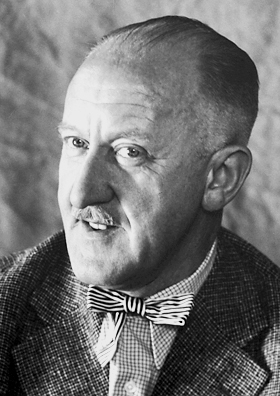Halldór Kiljan Laxness citáty a výroky
Halldór Kiljan Laxness: Citáty anglicky
Sjálfstætt fólk (Independent People) (1935), Book Two, Part I: Hard Times
Heimsljós (World Light) (1940), Book Four: The Beauty of the Heavens
“b>The first thing is to have the will; the rest is technique.</b”
Kristnihald undir Jökli (Under the Glacier/Christianity at Glacier) (1968)
“Isn't it funny how everyone manages to die except me?”
The Grandmother
Sjálfstætt fólk (Independent People) (1935), Book Two, Part III: Conclusion
Sjálfstætt fólk (Independent People) (1935), Book One, Part II: Free of Debt
Sjálfstætt fólk (Independent People) (1935), Book One, Part II: Free of Debt
Kontext: His mother taught him to sing. And when he had grown up and had listened to the world's song, he felt that there could be no greater happiness than to return to her song. In her song dwelt the most precious and most incomprehensible dreams of mankind. The heath grew into the heavens in those days. The songbirds of the air listened in wonder to this song, the most beautiful song of life.
Heimsljós (World Light) (1940), Book One: The Revelation of the Deity
Kontext: He was not quite nine years old, in fact, when he began to have spiritual experiences... he felt he saw God's image open before him. He felt the deity reveal itself in Nature in an inexpressible music, the sonic revelation of the deity; and before he knew it, he himself had become a trembling voice in a celestial chorus of glory. His soul seemed to be rising out of his body like frothing milk brimming over the edge of a basin; it was as if his soul were flowing into an unfathomable ocean of higher life, beyond words, beyond all perception, his body suffused by some surging light that was beyond all light. Sighing, he became aware of his own insignificance in the midst of this infinite chorus glory and radiance; his whole consciousness dissolved into one sacred, tearful yearning to be allowed to be one with the Highest and be no longer any part of himself. He lay for a long time on the sand or on the grass, and wept tears of deep and fervent happiness, face to face with the inexpressible. "God, God, God!" he cried, trembling with love and reverence, and kissed the ground and dug his fingers into the turf.
“Never did these thanes of hell escape their just deserts.”
Sjálfstætt fólk (Independent People) (1935), Book One, Part I: Icelandic Pioneers
Kontext: Never did these thanes of hell escape their just deserts. No one ever heard of Harekur or Gongu-Hrolfur or Bernotus being worsted in the final struggle. In the same way no one will be able to say that Bjartur of Summerhouses ever got the worst of it in his world war with the country's specters, no matter how often he might tumble over a precipice or roll head over heels down a gully - "while there's a breath left in my nostrils, it will never keep me down, no matter how hard it blows."
Brekkukotsannáll (The Fish Can Sing) (1957)
Heimsljós (World Light) (1940), Book One: The Revelation of the Deity
Ólafur
Heimsljós (World Light) (1940), Book Four: The Beauty of the Heavens
Merchant Gúðmúnsen
Brekkukotsannáll (The Fish Can Sing) (1957)
“b>Oh, it's so good to be dead!
- little Anna”
Heimsljós (World Light) (1940), Book Two: The Palace of the Summerland
EmBi describing Pastor Jón
Kristnihald undir Jökli (Under the Glacier/Christianity at Glacier) (1968)
Pastor Jón Prímus
Kristnihald undir Jökli (Under the Glacier/Christianity at Glacier) (1968)
Heimsljós (World Light) (1940), Book Two: The Palace of the Summerland
Íslandsklukkan (Iceland's Bell) (1946), Part III: Fire in Copenhagen
“The reason a man talks is to hide his thoughts.”
the self-conscious policeman
Atómstöðin (The Atom Station) (1948)
“Hope springs eternal in the human breast. (Original to Alexander Pope, An Essay on Man”
1734)
Heimsljós (World Light) (1940), Book Four: The Beauty of the Heavens
“Human beings are constantly inventing new ways of maltreating one other. C'est la vie.
- Úa”
Kristnihald undir Jökli (Under the Glacier/Christianity at Glacier) (1968)
“Jesus! My brother! Heave-up!”
Eilífðar-Daði
Heimsljós (World Light) (1940), Book Two: The Palace of the Summerland
“In the afterlife, people never forget to feed the dog.”
Friðrik the elf doctor
Heimsljós (World Light) (1940), Book Two: The Palace of the Summerland
Sjálfstætt fólk (Independent People) (1935), Book One, Part I: Icelandic Pioneers
Brekkukotsannáll (The Fish Can Sing) (1957)
